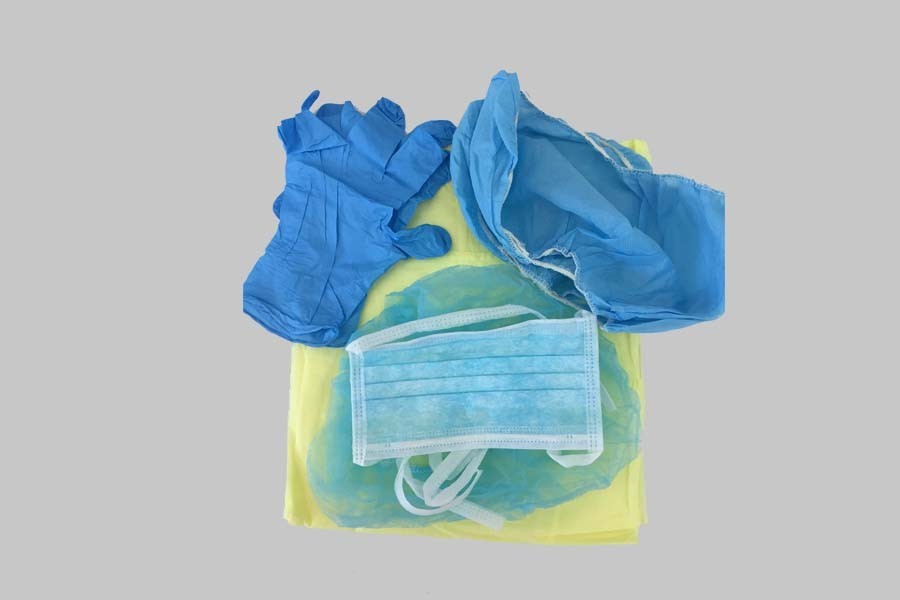The recent spectacle of physically distanced garment workers in queues, clad in personal protective equipment (PPE) and wearing masks and head covers while entering their factory, was undoubtedly encouraging. A 66-day countrywide shutdown has been lifted a week ago. Instead of entering their apparel factory unprotected and undisciplined, the workers have set a laudable example. Another view has a media photograph of discarded clothing pieces meant for protection from COVID-19. Those are dumped at an open space near a hospital. The articles include masks, gloves, PPEs and other related objects. To call the view just depressing will be an understatement. It's horrific given the dumped objects' potential for spreading the deadly COVID-19 virus. Allegations of selling used or ineptly made masks and gloves, and even PPEs, by a section of unscrupulous traders were there.
In the post-shutdown period, wearing masks has been made mandatory. Provisions for stringent punishment have been kept in the newly formulated law for people reluctant to use masks. Yet people without masks are often seen moving in the capital. On the other hand, the general people are normally prone to buying cheap masks, gloves and different protective paraphernalia, with the experts questioning their efficacy. Instead of saving themselves from the terrible virus, by using the protective covers in hazardous and slipshod ways, lots of people keep only exposing themselves to the virus. There is a great obstacle to the effective use of both the small and large equipment meant for preventing the disease. The standardisation authorities must ensure that the products' qualities are properly maintained.
There are ample reasons for doubt whether all the locally made PPEs and the other smaller equipment are being sufficiently screened before they finally reach their clients. It is upsetting to see that the manufacture of 3-layer cotton masks and 'surgical masks' has lately become an urban cottage industry of sorts. Given the products' easy availability, the shadowy business of masks, and also of gloves, appears to have turned into a free-for-all. Wearing masks while out of home has been recognised globally as a premier COVID-19 protective requirement. In the badly affected post-lockdown countries, people in surgical or normal masks are a common spectacle. Even people sun-tanning on the beaches or strolling in parks are invariably found with their masks on. In restaurants and coffee shops in many lockdown-free overseas cities, waiters mandatorily wear hand gloves and head covers. Encountering such scenes in the shutdown-free Bangladesh in the near future should not be clouded with doubt.
Coping successfully with the novel coronavirus pandemic is no child's play. Even the highly developed countries have proved themselves being at a loss for a pragmatic way out of the global scourge. In a fraught situation like this, the plight of the less developed, and thus vulnerable, nations like Bangladesh is understood but mainly she must strive to fend for herself. Many PPE users in the country are yet to learn some basic facts: This specially made protective cover ought to be left outside before entering home. Likewise, it should be worn outside the home interior in order to keep the family members out of the radius of the possible viral presence. Few seem to be mindful of these imperatives.


